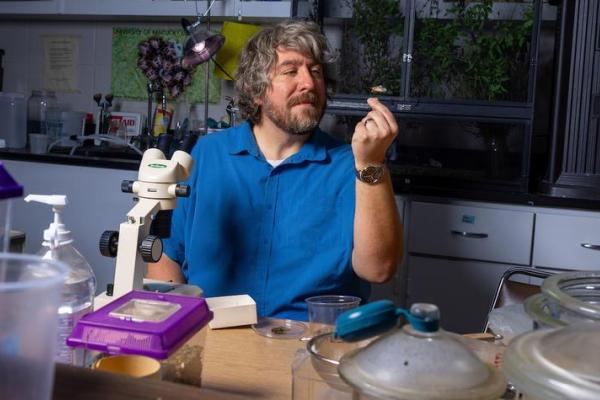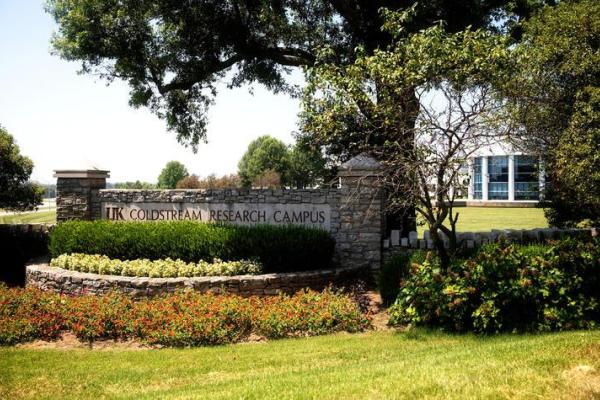New Faculty Members in African and Africana Studies Expand Diversity at UK
Five recently hired faculty members associated with the Department of African and Africana Studies in the College of Arts & Sciences are broadening the range of diverse and inclusive course offerings to University of Kentucky students. The five new hires are JWells, Vieux Touré, Lydia Pelot-Hobbs, Brandon M. Erby and Aria S. Halliday.
“It is important to hire Black faculty in these areas and all areas, because their individual and collective research expertise is essential to the mission of the University,” said Damaris B. Hill, interim director of the African American and Africana Program. “This kind of research is essential because we, at the University of Kentucky and beyond in our global community, cannot understand where humanity has been and where we are going without Black Studies.”
Coursework in the AAAS program takes an in-depth look at the history and culture of Black people in Kentucky, the United States and around the globe. What students learn throughout the 39 credit-hour program could lead to career opportunities in business, education, communication, medicine, law and politics.
“Black Studies is an incubator for new knowledge regarding global Black peoples and humanity,” Hill said. “These AAAS new faculty hires and AAAS faculty affiliates are agents of research and new discoveries. We are so happy to have them here. These hires are an important indication within the College of Arts and Sciences, and by extension at the University of Kentucky, that Black Studies matter.”
The new faculty are:
JWells is an assistant professor in the Department of Rhetoric, Writing, and Digital Studies and African American and Africana Studies. She completed her doctorate in English with a specialization in rhetoric and writing at The University of Texas at Austin. JWells’ research interests include cultural literacies, women’s rhetorics, maternal incarceration and race. Her current project explores incarcerated mothers’ literacy practices and how those practices both align with mainstream mothering discourses as well as rejected deficit mothering discourses, such as the Welfare Queen Trope associated with Black mothers.
Vieux Touré is an instructor in Modern and Classical Languages (French and Francophone Studies) and African American and Africana Studies. Vieux’s project explores transnegritude – a concept he is developing – and Black identity politics in African literature of the 20th and 21st centuries. His research and teaching interests include African and Afro-diasporic literatures and cultures, African cinema, contemporary Africa and post-colonial/decolonial theories.
Lydia Pelot-Hobbs is an assistant professor in the Department of Geography and African American and Africana Studies. Her research is focused on the nexus of the carceral state, racial capitalism and social movements, and grassroots organizing. Her current book manuscript tracks the multi-scalar formation and contestation of the Louisiana carceral state from the 1970s to the present day through examining the interplay between different facets of punitive state power (prisons, jails, policing) and neoliberal crises and realignments in the rise of mass incarceration and how activists, behind bars and free, have struggled to scale back punitive power in the lineage of abolition democracy.
Brandon M. Erby is an assistant professor in the Department of Writing, Rhetoric, and Digital Studies. His research interests include African American rhetoric, literacy studies, critical education and the rhetoric and historiography of the Civil Rights and Black Power movements. Erby’s work is motivated by the ways that African Americans strategically use tenets of rhetoric and literacy to respond to social injustices, survive acts of oppression and create societal change. He is writing about the life, activism and pedagogy of Emmett Till’s mother, Mamie Till-Mobley.
Aria S. Halliday is assistant professor in the Department of Gender and Women’s Studies and the program in African American and Africana Studies. Halliday specializes in cultural constructions of black girlhood and womanhood in material, visual, and digital culture in the 20th and 21st centuries. Her interdisciplinary interests include sexuality, Black feminism and radicalism in Black popular culture in the United States and the Caribbean. She is the editor of The Black Girlhood Studies Collection (Women’s Press, 2019) and co-editor of a special issue on hip-hop feminism in Journal of Hip Hop Studies (2020). Her articles are featured in Cultural Studies, Departures in Critical Qualitative Research, Girlhood Studies, Palimpsest and SOULS. Her book, Beyond Barbie: Nicki Minaj, Disney, and Black Women’s Cultural Production, is under contract with the University of Illinois Press. Halliday is a Woodrow Wilson Career Enhancement Fellow (2020-2021) and has served as the co-chair of the Girls and Girls’ Studies Caucus at the National Women’s Studies Association since 2016. She is also working with Ashleigh Greene Wade (Penn State) on the Digital Black Girls Archive, a digital humanities database featuring representations of Black girls in popular culture.
More from this series Research Priorities - Diversity & Inclusion
Credits
Richard LeComte (College of Arts and Sciences)



